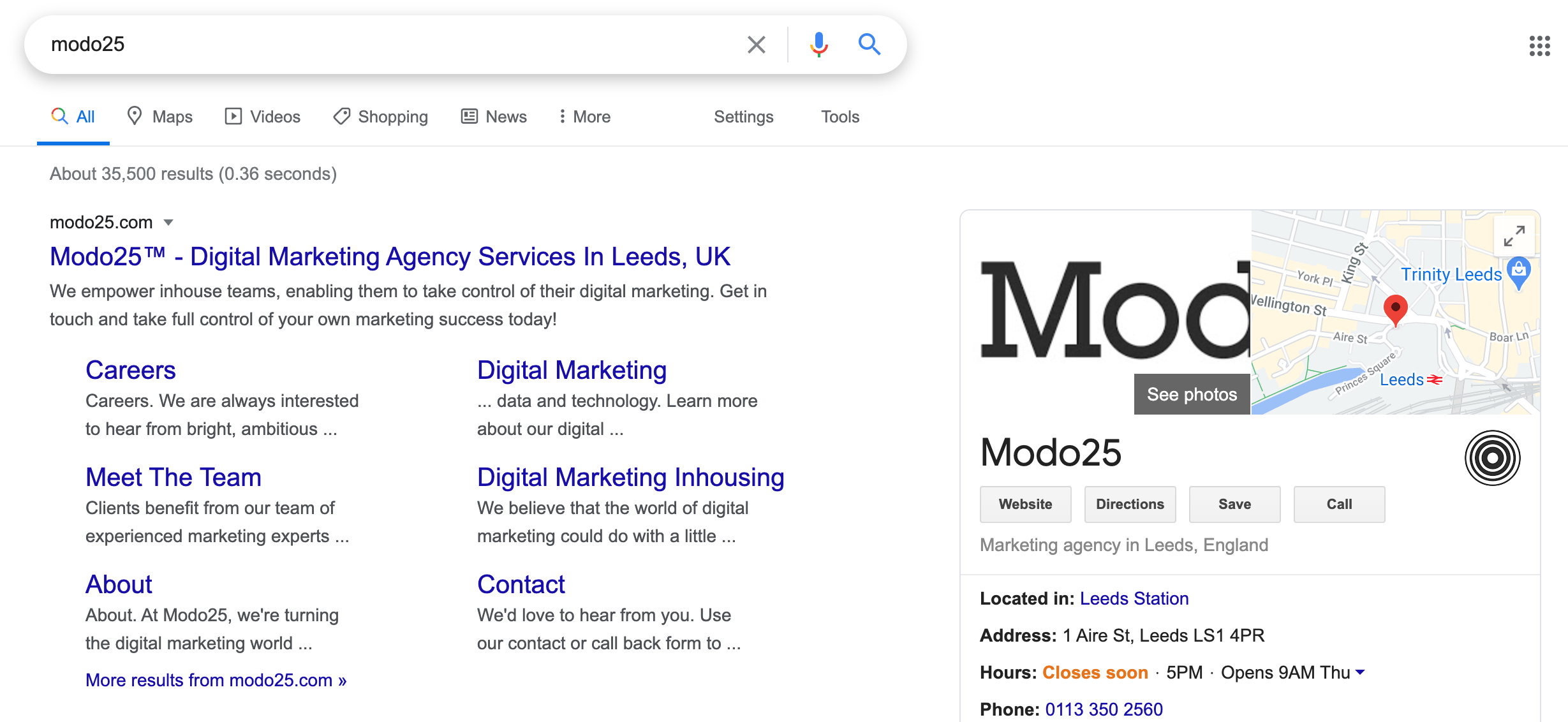Knowing what search intent is and how to use it in your SEO strategy can take your content to the next level. If you find you’re writing lots of content for your site and none of it is ranking, it could be because the keywords you’re using and your ideal users search intent don’t match up.
In this post, we will discuss what search intent is and how you can better incorporate it into your digital marketing plans.
What is search intent?
Sometimes knows as user intent, search intent refers to the goal the user has when using a search engine. These users are expecting an answer to their question, query or further information on a topic.
For example, someone searching for a curry recipe has a different intent than someone searching for a takeout curry. Although both are related to the same topic, the users have very different intents.
Why is search intent important?
Search intent is important to Google and therefore it’s important for SEO. That’s because the Google algorithm works to make searches better. If someone searches for something and they aren’t met with the right content, they won’t click on any of the results. This then sends a signal to Google to let them know the results and search intent aren’t correctly matched.
Google’s primary ranking factors are relevance, authority and user satisfaction. With those in mind, it’s easy to see why your keywords should mirror search intent to improve overall rankings for your site.
Different types of search intent
There are four main types of search intent, they are:
- Informational – searches that are looking for further information on a topic. E.g. ‘how to bake cupcakes’ or ‘directions to Heathrow Airport’.
- Preferential/commercial – searches that are looking for comparisons or investigations into brands and or services. E.g. ‘best hoovers for carpets’ or ‘Sainsbury’s vs Tesco’.
- Transactional – searches where the user is ready to make a purchase. E.g. ‘Samsung voucher’ or ‘Topshop sale’.
- Navigational – searches where the user is looking for a specific website. E.g. ‘Spotify’ or ‘Gmail’.
 How different search intents appear in SERPs
How different search intents appear in SERPs
If you’re not sure what search intent your keywords are, take it back to basics and Google them. Looking into the types of SERPs (search engine results page) that appear when searching for your keyword will tell you everything you need to know.
- Informational – searches appear as featured snippets, knowledge grabs and related questions. Top results are usually organic and will oftentimes be Wikipedia, dictionary definitions or long-form content.
- Preferential/commercial – searches can appear as featured snippets but will also show paid results and ads at the top. This could be ads for the searched companies or brands websites.
- Transactional – searches appear as paid and or shopping results, carousels and reviews. These are often product pages but can also be brick and mortar retailers with geographical locations too.
- Navigational – searches appear with direct results to users search term. As the user is usually searching for a specific company or brand, their respective website will list first.
How to optimise your content for search
In order to better rank your content based on user intent, there are a few best practice actions you can take.
Firstly, you should match the metadata to reflect your new keywords. That includes updating title tags as well as H1s and H2s. Secondly, scope out the competition. See which pages are currently ranking for those keywords and take notes on how they are designed. This could be incredibly insightful.
Finally, format your content with SERPs in mind. We’ve previously discussed how to optimise for featured snippets. Make sure to understand the different SERP types and how to structure and format your content to give it the best chance of appearing in higher results.
Looking for digital marketing support? Drop us an email on team@modo25.com to find out how we could work together.






